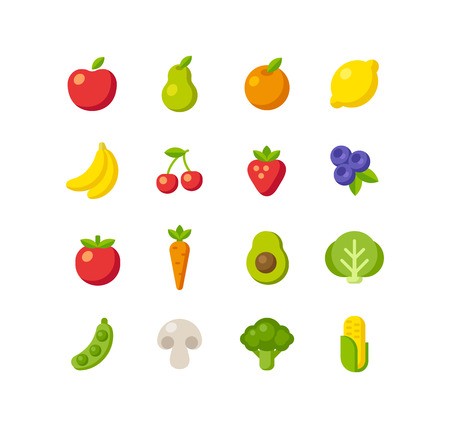Five fruits and veggies a day are good, ten might be better. At least when it comes living longer, and not dying from cancer, heart disease and stroke, according to a new study published in the International Journal of Epidemiology.
If everyone were to eat 10 fruits and vegetables a day, that could prevent an estimated 7.8 million premature deaths worldwide, the authors calculate.
This study was an analysis of the global research, including 95 studies and over 2 million people.

The researchers found that even just two to three portions of fruits and vegetables a day – 200 grams – reduced risk of disease and premature death to some degree compared to those who ate none. This amount reduced dying from any cancer or for any reason by 3 percent and 10 percent, respectively.
One serving of fruit or vegetable was defined as 80 grams.
Eating more linked to living even longer. The greater reduction in mortality was seen among the group that ate 10 servings for staving off cardiovascular disease, heart disease and stroke. Compared to not eating any fruits and vegetables, eating 800 grams lowered risk of dying from these diseases from 24 to 33 percent.
For cancer, reduced risks were seen up to about 7.5 fruits and vegetables a day (600 grams), with a 13 percent lower risk of dying from any cancer.
When analyzing specific types, the greatest risk reduction from cancer mortality linked to cruciferous vegetables and green-yellow vegetables.
Overall, most of the reduction in risk was steeper at the lower range of fruit and vegetable intake.
That’s good news for Americans given that the vast majority of adults are not even eating the recommended amount: about 1.5 cups of fruit and 2–3 cups of vegetables daily. The serving size of 80 grams in this study is equal to any of the following: a large carrot, 1/2 cup cooked broccoli, 1/2 small piece of fruit or 1 1/2 -2 cups lettuce. You could get to the 10 servings in one day by including 1 orange at breakfast, a carrot and apple at lunch, a large banana at snack and cooked broccoli and a large salad with tomatoes at dinner.
The findings in this research show a link, not necessarily proving the fruits and vegetables caused the lower mortality. There are other possible reasons for the link, such as lifestyle factors more common to individuals who eat a lot of produce. Fruit and vegetable lovers are less likely to smoke, and be overweight. They are also more likely to be active and drink less alcohol. And all of that can play a role in cancer and other disease risk. (Many studies — but not all – did adjust for being overweight. And the researchers found that these links still held after accounting for several of these other factors.)
And not all previous studies have found such strong links, but one strength of this study is its large size.
When it comes to lower risk of developing cancer — as opposed to lowering cancer mortality — here at AICR we’re big fans of fruits and vegetables of all types and colors. These foods are packed with a variety of nutrients and phytochemicals well studied for their link to lowering cancer risk. They also can help with weight management, and that has a major role in lowering risk for many cancers.
For more information on specific fruits and veggies, see our Foods that Fight Cancer section.
This study was funded by Olav og Gerd Meidel Raagholt’s Stiftelse for Medisinsk Forskning, the Liaison Committee between the Central Norway Regional Health Authority (RHA) and theNorwegian University of Science and Technology, and the Imperial College National Institute of Health Research Biomedical Research Centre.






The article is very interesting and very useful..